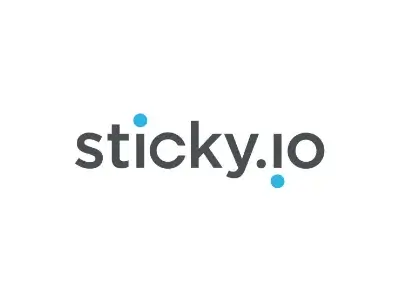Moving from Proof of Concept (PoC) to operationalizing models involves challenges in system integration, data migration, and changes to business workflows. dotData Ops addresses these challenges by enabling simple, rapid deployment of data and feature pipelines. dotData Ops offers an agile, self-service platform for data science teams to swiftly deploy and validate pipelines in real-world scenarios, speeding up model development and boosting business leaders’ confidence.
dotData Ops Elevate MLOps Platform with Seamless Orchestration
dotData Ops is a rethinking of the MLOps platform through seamless orchestration of models, features, and data for faster, scalable deployment and management.
Rapid Business Validation with Self-Service
Feature & Model Deployments
Manage Data, Features, and ML Predictions
in a Single Pipeline
dotData Ops empowers data science teams, BI and analytics professionals by providing an intuitive, self-service environment for efficiently deploying and operationalizing data, feature, and ML prediction pipelines. Through dotData’s automated feature discovery technology, it revolutionizes MLOps – monitoring the model performance and business impact of your features and models, diagnosing source data for enhanced insight into model drift, and re-engineering features to combat data drift beyond model refitting.
Product Features
Machine learning workflows require independent development, operation, and maintenance of data processing and feature calculation. dotData Ops pipelines automate everything from data processing to feature calculation, resulting in predictions and efficient, one-stop operation and model management functions.
Instant Deployment
Upload model packages and automatically deploy model & features to production.
Prediction & Evaluation Scheduler
Configure regular prediction and evaluation schedules with daily, weekly, monthly, or custom schedules.
Streamlined Pipeline
Manage data preprocessing, feature transformation, and ML prediction in a single pipeline.
Monitor Business & Technical Impact
Register custom KPIs, track business impact, and model performance in a single dashboard.
Feature & Model Drift Prediction
Track model performance, feature distribution, and model-related features over time to spot feature drift and changes in statistical metrics as your data changes.
Automatic Alerts
Configure customized thresholds on drift and changes, whether to business metrics, model performance, or feature distribution and receive automatic alerts on Slack or MS Teams.
Source Data Diagnosis
Track performance, feature distribution, and structured data over time to spot feature drift and statistical changes.
Model Retraining & Feature Re-engineering
Retrain your models, adjust parameters, or re-engineer features to resolve essential data changes, keeping your machine learning capabilities up to date.
Steps to Use
Upload your ML model package for rapid, easy deployments.
- Instantly deploy streamlined pipelines of data, features, and ML predictions with a simple package-based deployment.
- Specify your data locations to start feature generations automatically and predict and monitor performance.
Configure regular predictions using deployed models through an intuitive GUI.
- Schedule regular prediction jobs with a few clicks for daily, weekly, monthly, or fully customized schedules.
- Maintain optimal infrastructure costs with cluster auto-scaling in scheduled jobs.
- Receive status notifications model & feature quality alerts on Slack or Microsoft Teams.
Monitor and visualize the business impact along with quality and performance of your models and features to help your model management.
- Track business, model, and feature quality metrics on a single dashboard.
- Visualize business and technical performance metrics to ensure your models continue to deliver value over time.
- Detect and receive alerts of degradation of models and features to take immediate preventive actions.
Diagnose the root cause of model or feature degradation by tracing problems back to source data.
- Discover the key features responsible for the decline in model performance and analyze how their distribution and statistical metrics have changed over time.
- Trace the root cause of model and feature drift back to source data and diagnose whether errors or essential data changes are responsible.
Move beyond simple model retraining by re-engineering features to combat data drift.
- Re-engineer features to maintain model and feature quality in response to essential changes in your source data.
- Stay ahead of data changes by continuously discovering and delivering new features and insights.
What Our Customers Say
Exeter Finance
The biggest problem is that, when doing it manually, it’s just a repetitive, trial-and-error process that takes time. dotData solves a problem I’ve been trying to solve for 20 years.

sticky.io
I was spending 95% of my time wrangling data…now I can offload most of that work and just focus on delivering viable patterns and insights.
Use Cases
A US National Distributor of Electrical Components
News
dotData's AI Platform Maximize Data Utilization through Feature Discovery
dotData leverages automated feature engineering to build models using machine learning, enhancing data by accumulating feature values as assets and extracting valuable insights, enabling businesses to become more data-driven. Our platform satisfies a wide range of needs, including business transformation, and support the effective use of data and AI to drive innovation and growth.
Request a Demo
We offer support tailored to your needs, whether you want to see a demo or learn more about use cases. Please feel free to contact us.
Frequently Asked Questions
A machine learning pipeline is a series of processes that collects and preprocesses business data, calculates features that will be imputed to a trained machine learning model, and inputs the features into the model to calculate a prediction score. refers to General MLOps operates and manages the last step of the above pipeline (inputting the features into the model and calculating the prediction score). A major feature of dotData Ops is that it can operate and manage the entire pipeline, from data preprocessing to feature calculation, covering the machine learning lifecycle. This not only simplifies the entire machine learning project, but also provides excellent functions not found in traditional MLOps platforms, such as diagnosis problems back to source data when model deterioration occurs and feature relearning.
The easiest way to build machine learning pipelines managed with dotData Ops is with dotData Enterprise or dotData Feature Factory. These platforms use dotData’s unique automated feature automatic discovery technology to take business data as input, perform data preprocessing, discover effective features, and build machine learning models, which can then be operated with dotData Ops.
In dotData Ops, in addition to periodically retraining the machine learning model, including adjusting Piper parameters, by comparing the challenger model against the model in operation (champion model), the model can be measured using accuracy deterioration as a trigger. dotData Ops provides advanced machine learning model maintenance functions such as updating (this function is scheduled to be released in 2024.)
dotData Ops allows the operation of machine learning models that can be converted to ONNX format, a standard format for machine learning models. Models developed in Python by highly skilled data scientists and models developed using dotData Enterprise, a no-code machine learning platform, can be operated on a single platform. In addition, when combined with dotData Feature Factory, you can incorporate data preprocessing written in Python or SQL into your pipeline and manage it with dotData Ops (this feature is scheduled to be released in 2024.)





